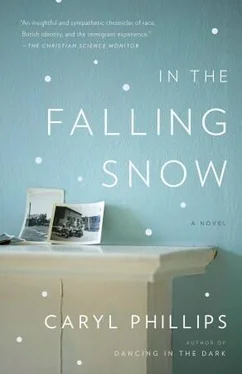He begins the email for a second time. The use of the phrase, ‘waiting for the other shoe to fall’, seemed a little too colloquial and clumsy, but having deleted it, and read back over everything that remained, he decided to start afresh. After dropping Laurie off at home, he managed to work on the book for a couple of hours until he finally confessed to himself that he did, in fact, need a total break from it, for he was beginning to lose sight of the book’s purpose. He breaks off from the email and pours a glass of wine. He returns his attention to the computer screen, and then he begins to write anew to Lesley, but this time in a manner that he hopes will strike a better balance between the formal and the informal. He doesn’t want to insinuate any real friendship with her, but at the same time he doesn’t want to come over as being cold and detached given the nature of their last meeting at Starbucks. He simply explains that he will be going away for a few days and he would appreciate it if she could keep him in the loop if there are any developments. He thought hard about this last phrase, and although it’s not perfect it somehow makes more sense than referring to shoes falling. He is asking her to help him get ready for any move that Clive Wilson might try to pull, including pressing formal charges, although he has no idea what he will do should it come to this. However, a little advance warning can’t hurt. He suggests to Lesley that she might contact him if she hears anything, but he tries to make it clear that email is his preferred mode of communication for he worries that requesting a telephone call might be misinterpreted as a sign of collaborative intimacy.
He gets up from the computer and crosses to the coffee table where he pours himself a glass of Perrier water. He returns to his desk and for a second time he deletes the entire email, unsure of the phrasing and whether this is even a good idea. But there is nobody else he can ask to look out for his interests. He wonders, if things were to go really wrong, who would be there for him? Laurie? Maybe at some point in the future, but certainly not at the present time. A daughter would probably have been better suited to the role of looking after dad, but there is not much that he can do about this. He opens a new email document and begins to type, having decided that it is best to do so quickly and without too much thought. He is simply asking Lesley to follow through on what she has basically suggested herself. He is asking for her help, but not in a way that should make her feel obligated, nor in a manner that should make it appear that he is desperate. He signs it, ‘Best wishes,’ and sends the email off without reviewing it. He gets up and takes both his glass of wine and the glass of water and sits on the sofa. He should have done this before, instead of hanging about London and becoming frustrated with the book, and then almost getting into trouble with Danuta. A break will do him good, and by the time he is ready to return to London he will hopefully be able to deal with things in a more decisive fashion. Maybe he should call Annabelle and let her know that he is going away? Or perhaps call Laurie and let him know? Not that he can be certain that either of them will care. It’s just information, right?
In the morning he stuffs a Nike sports bag with a few shirts, a pair of jeans, socks and underwear, and some softcover non-fiction, but nothing about music. He decides to pack as though he will be gone for only a few days, knowing that if he decides to stay longer then he can always buy additional things. He double-locks the door behind him, and then tumbles down the stairs and out on to the street. He takes a tube that is crammed with semi-comatose commuters who squeeze up next to each other and idly scan the back of other people’s newspapers, while those lucky enough to find a seat simply slump and allow their heads to bounce gently in all directions. Once he reaches King’s Cross, he realises that if he hurries he can catch a train that leaves in ten minutes. Unlike the tube, the train is relatively empty and he imagines that most of the commuting is in the other direction, into London. The view out of the window is not particularly interesting as they lumber past the back of endless rows of houses, but eventually it begins to rain lightly, and the drizzle spatters the window of the now speeding train so that a hundred rivers soon run in all directions on this map of an unnamed country. He closes his eyes and tries not to worry about the fact that Lesley has chosen not to reply to him. Maybe she hasn’t yet looked at her emails or, despite all his efforts, perhaps she has taken offence at some perceived impropriety in his tone or phrasing.
The ticket inspector wakes him up by pushing his shoulder with the palm of his hand.
‘Look, mate, you better get off unless you’re ready to go back to London.’
He looks around at the empty carriage, then climbs quickly to his feet and retrieves his holdall from the rack above his head. The station is an old Victorian edifice, with huge vaulted ceilings where the birds are constantly disturbed by the roar of train engines and fly in crazy circles. Once he passes out on to the concourse he joins the long line for a taxi and pulls his jacket tight around himself, for the rain is bucketing down. The taxi driver listens quietly to the local BBC news station, while he sits upright and alert in the back seat and looks at what should be familiar streets. However, with each passing year the streets are becoming increasingly difficult to recognise for there seems to be a vogue for replacing the old brick buildings with tall structures of steel and glass. These days his city appears to be trying hard to reinvent itself as a modern hub of commerce and opportunity, but the evidence before his eyes leaves him unconvinced for the people pounding the streets seem to be the same folks as before and, as far as he can see, all that has changed is the scenery. However, he doesn’t live here any more and so he feels no necessity to debate the issue, even with himself.
He knocks a second time, but he knows that his father probably can’t hear him above the noise of the television set. He takes two steps to his left and taps on the living room window, but it is impossible to see anything through the discoloured net curtain. His father’s hand pulls back the yellowing material, and his unshaven face is now visible in the window. He can immediately see that the older man has aged. His father is clearly baffled to see his son standing before him but, furrowing his brow, the bemused man points towards the door.
‘All right, Dad.’
His father is not yet dressed, but he holds the door wide open. His pyjamas hang loosely from his thin body, and the socks on his feet are full of holes. He stares at his son as though unsure of what to say.
‘Well, you’re not going to leave me standing outside in the rain all morning, are you?’
‘You can’t call and tell me you’re coming?’
‘I wanted to surprise you.’
‘Well you managed that all right.’
He pours the water on to the teabag and waits for it to steep. There’s no getting around it: the house smells as though it hasn’t been cleaned or aired in a long while. From the kitchen, he can hear the studio-based morning chat show on the television, and he imagines that his father has settled down to resume watching. The topic for the day is teenage pregnancies in schools. Apparently there is an epidemic of them, particularly in the so-called immigrant communities. He removes the teabag and stirs three spoonfuls of sugar into his father’s tea, before carrying the mug through into the living room. He places the tea on an old wooden stool that is clearly a substitute for a table, and then he collapses down into the shapeless armchair to the side of the sofa. It is nearly two years since he last visited, and that was only because he was in the north of England for a conference and it seemed somehow wrong not to at least stop by and say ‘hello’. The greeting back then had been equally unenthusiastic, but at least his father and the house had appeared somewhat presentable. As his father continues to watch television, he looks around and is alarmed to see the decline in both his father and his living conditions.
Читать дальше









![Unknown - [Carly Phillips] The Bachelor (The Chandler Brothe(Bookos.org) (1)](/books/174132/unknown-carly-phillips-the-bachelor-the-chandle-thumb.webp)


